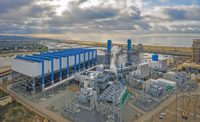California Commission Delays Vote on Huntington Beach Desal Project
Backers of a proposed 50 million-gallon-a day (mgd), $900-million desalination plant on the Pacific Coast in Huntington Beach, Calif., suffered a setback on Nov. 13 when the California Coastal Commission delayed a vote to approve the project.
The project is the second major desalination plant being planned in the state by Poseidon Water, Boston. The first, in Carlsbad, is a 54 mgd plant that is currently under construction (ENR Oct. 21 p.32) and expected to be completed in 2015.
The coastal commissioners asked Poseidon to study the feasibility of an alternative intake structure that would rest beneath the ocean floor in Huntington Beach and potentially reduce the plant's environmental impact on marine life. The current design has an intake pipe that extends 1,800 ft and features, at the end of the pipe, a velocity cap to reduce harm to water organisms.
Scott Maloni, vice president of development at Poseidon, says the subsurface intake system is "an unproven technology" that has never been used on a project at the Huntington Beach plant's scale. "Studies that have been done independently of Poseidon have shown that the [current design's] level of impact would not affect the ability of species to sustain their populations," he says. Those studies suggest a plant that withdraws 127 mgd of seawater entrains 80 organisms out of 115 billion organisms, which equates to about a 0.3% impact.
But Joe Geever, water programs manager, Surfrider Foundation, Long Beach, Calif., which has been challenging the project's permits for the past seven years, says the commission raised concerns over the adequacy of some of the studies used to inform some of the permitting and other decisions.
"There is some legitimate concern about whether these studies were un-biased" and peer-reviewed, Geever says. "This is important that they get this right because this, at some level, is going to set a precedent for project proponents up and down the state."




